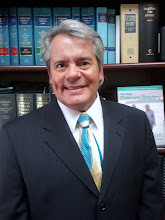The Nursing Home Patients Bill of Rights (NHPBR) is a federal law that mandates the type of care nursing home patients, residing in nursing homes that receive Medicare or Medicaid, must receive. The NHPBR states under Title 42 Code of Federal Regulations 483.13, subsection (a) that nursing center residents have “the right to be free from any physical or chemical restraints imposed for purposes of discipline or convenience, and not required to treat the resident's medical symptoms.”
In a tragic case of nursing home abuse by nursing facility staff, three nursing center staff employees of Kern Valley Healthcare District violated the NHPBR and criminal statutes prohibiting elder abuse. The three staff members included the center’s one-time medical director, the former nursing director, and the former chief pharmacist. In a criminal complaint filed by the California Attorney General, it alleged that the nursing director administered these drugs to practically all the residents, except the most docile. The medical director allegedly approved the nursing director’s requests for medicating the residents. Additionally, the chief pharmacist complied with the requests for medication on the basis that the nursing director had experience working at psychiatric hospitals.
All three victims died unnecessarily. Fannie May Brinkley could have lived another couple years, but due to the anti-seizure drug, Depakote, she was given, and the lack of care by staff, she died. As for Joseph Shepter, he was given Depakote and two other drugs, and as a result lost 20 percent of his body weight. Thereafter, his health deteriorated, resulting in an infection and pneumonia; he eventually died as a result of his illness. As for Alexander Zaiko, he died after he was given Zyprexa, and Depakote.
In addition to these three residents, 20 other residents were given psychotropic drugs. Consequently, these individuals experienced numerous side effects, including severe weight loss, slurred speech, loss of cognition, tremors, and psychosis
The three nursing staff members are facing criminal charges, including charges for administering shots by force and without consent, and charges of assault with a deadly weapon.
NHPBR Protects Rights of Residents
The NHPBR has provisions that ensure the proper care of nursing home residents. Nursing facilities must have enough staff to make sure that residents have the highest practicable level of physical and mental well being. It also has provisions regulating pharmacists. Pharmacists are required to review the resident’s drug regimen periodically and report any irregularities in the resident’s drug regimen to the doctor or the nursing director.
Steps to Take if You Discover Elder Abuse
Besides contacting an attorney who is qualified and experienced in handling elder abuse cases, it is important to take immediate steps in preserving evidence that will later be useful. It is important to take photos of any noticeable physical injuries or conditions, writing down information about the incidents of abuse, and obtaining a copy of the medical chart from the nursing home.
The improper use of chemical restraints against nursing home residents is both wrong and criminally punishable. Although under reasonable circumstances a licensed physician may suggest chemical restraints after other methods have been exhausted, they cannot be used for the sake of convenience of the nursing staff. If someone you know and care about has been improperly restrained and injured as a result, contact an elder abuse lawyer immediately.
Subscribe to:
Post Comments (Atom)


No comments:
Post a Comment